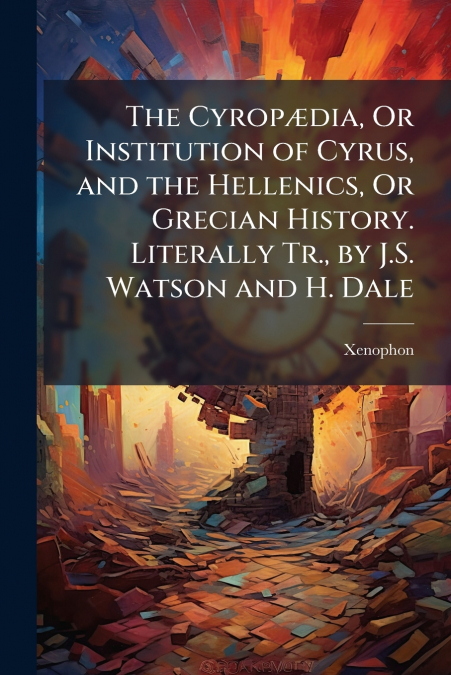
Xenophon
This volume contains two major works by Xenophon: 'The Cyropædia, Or Institution of Cyrus' and 'The Hellenics, Or Grecian History.' 'The Cyropædia' presents a semi-fictional biography of Cyrus the Great, founder of the Persian Empire, offering insights into leadership, education, and the qualities of an ideal ruler. Xenophon explores Cyrus’s upbringing, military strategies, and his ability to inspire loyalty and maintain order within his vast empire. The work blends historical elements with philosophical reflections on governance and human nature. 'The Hellenics' provides a historical account of Greece from 411 to 362 BC, continuing the narrative where Thucydides’ 'History of the Peloponnesian War' ends. Xenophon details the political and military events of this turbulent period, including the final years of the Peloponnesian War, the rise of Thebes, and the struggles for hegemony among the Greek city-states. This translation by J.S. Watson and H. Dale offers modern readers access to Xenophon’s important contributions to historical and biographical literature.This work has been selected by scholars as being culturally important, and is part of the knowledge base of civilization as we know it. This work was reproduced from the original artifact, and remains as true to the original work as possible. Therefore, you will see the original copyright references, library stamps (as most of these works have been housed in our most important libraries around the world), and other notations in the work.This work is in the public domain in the United States of America, and possibly other nations. Within the United States, you may freely copy and distribute this work, as no entity (individual or corporate) has a copyright on the body of the work.As a reproduction of a historical artifact, this work may contain missing or blurred pages, poor pictures, errant marks, etc. Scholars believe, and we concur, that this work is important enough to be preserved, reproduced, and made generally available to the public. We appreciate your support of the preservation process, and thank you for being an important part of keeping this knowledge alive and relevant.